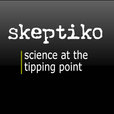
Summary: Interview with author and influential thinker in the Emergent Church movement looks at Christianity 10,000 years from now. Join Skeptiko host Alex Tsakiris for an interview with the author of, A Heretic’s Guide to Eternity, Spencer Burke. During the interview Mr. Burke is asked about the future of Christianity in light of discoveries regarding the nature of consciousness, “I take a long view of history. So let’s say 10,000 years from now the Christians look back at us in the early, nostalgic age of early Christianity in the year 2000. Think about all the understanding and knowledge they will have. This perspective gives us a little bit of freedom to hold things a bit loosely. If I say, ‘what I have right now, if I lose it I lose who I am’… that’s a difficult place to be. But if I say, ‘here’s who I am today’, now I have the freedom and strength to continue to move forward without the fear or worry of discovering, learning, growing, evolving… whatever words you want to use… maturing in ‘the way’… why are we so afraid of that?” Mr. Burke also examines the future direction of the Emergent Church movement he helped found, “…you know the pendulum swung so hard in some ways with the Emerging Church, and I love that, but it’s also got to find some reality and that’s my quest. Like in my book, Making Sense of the Church, I was struggling with the idea of saying all evangelism is just evil. And I’m like, no, just evil evangelism is evil. Leadership’s bad. No, bad leadership is bad. Isn’t there good leadership? Good evangelism? And I think what Skeptiko is doing with this in a beautiful way is maybe creating that hybrid. I think that’s what this next thing is.” Learn more about Spencer Burke Play it: Download MP3 (41:00 min.) Read it: Alex Tsakiris: Welcome to Skeptiko where we explore controversial science with leading researchers, thinkers, and their critics. I’m your host, Alex Tsakiris, and for those of you who have been following this show for a while, you might realize that we’ve kind of been going down two tracks. One track, of course, is exploring the science of consciousness. This has more-or-less been the mainstay of the show. We’ve primarily focused on evidence that this here-now mind model of consciousness, if you will, that is that everything that makes you you is generated by your brain right here and right now. That’s obviously the prevailing model in science. What we’ve been focusing on is that that model, that paradigm, is more-or-less being swamped by data that suggests otherwise. So on this show we’ve interviewed Rupert Sheldrake and Morphic Residence and Dean Radin and Presentience and Remote Viewing and Global Consciousness Project and on and on and on. Lately we’ve been looking at near-death experience. All of these phenomena and the data that the research into them has generated contradicts this model that our mind is generated by what our brain is doing right here, right now, that chemistry. Overturning that model has such a profound effect for just about every area of science that you look at that it really deserves a lot of attention that we’ve given it on this show to really understand what that research is telling us. At the same time, of course, we’ve had to look at the opinions of the hold-outs, the skeptics, and the folks that are saying, “Not so fast.” And this point of view is probably best expressed by Dr. Richard Wiseman, who’s been a guest on the show a couple times and who takes the position that sure, all that data is great, but it’s not enough to convince me. It may be enough for any other field of science, but for such a revolutionary idea it’s not enough. It falls under this “extraordinary claims, extraordinary proof” thing that you’ve heard[...]
